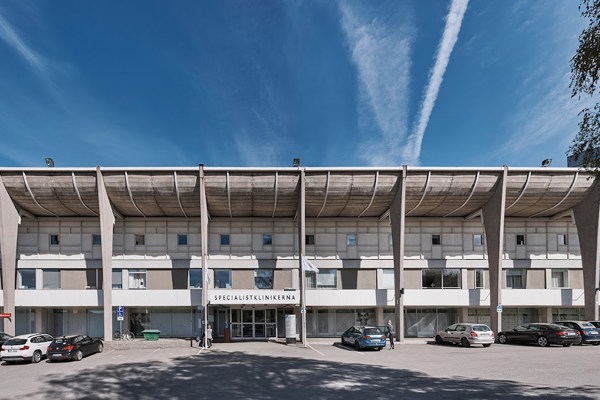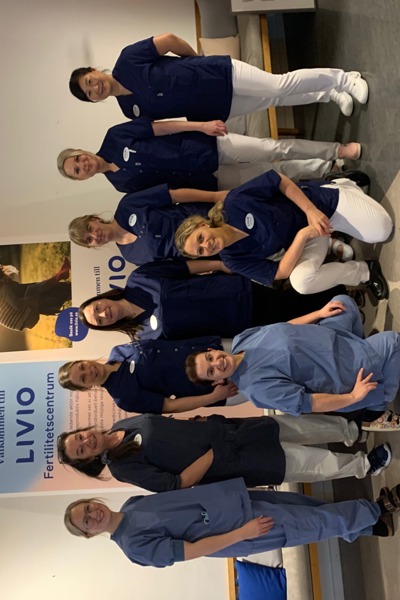ICSI (Intracytoplasmic Sperm Injection) Treatment
When the sperm sample contains too few or poorly motile sperm, the sperm are assisted in fertilizing the eggs during IVF. Each mature egg is injected with a single sperm. This method is used in around 50 % of IVF treatments.

What is ICSI
ICSI is a method within IVF where a single sperm is injected directly into an egg to assist fertilization, especially in cases of male infertility.
Who is it for?
ICSI is intended for patients with a low sperm count, reduced sperm motility, or when sperm must be retrieved surgically. It can also be applied in treatments involving egg or sperm donation.
What are the benefits of ICSI?
By injecting the sperm directly into the egg, the sperm does not need to pass through the egg's natural barriers on its own, which can facilitate fertilization.
Your ICSI journey: step-by-step

Fertility Assessment
The first step is to undergo a fertility assessment. This assessment analyzes the woman's ovarian capacity through a vaginal ultrasound and AMH blood test.

First Consultation
During the initial doctor's visit, a comprehensive review of your fertility assessment is conducted, including factors such as your age, previous treatments, lifestyle factors, and medical history. A gynecological examination with an ultrasound of the uterus and ovaries is also performed, and additional tests may be recommended if needed. Your future treatment plan is also discussed at this stage.

Hormone Stimulation
Treatment begins with hormone stimulation, planned and initiated with one of our midwives or nurses. The woman is stimulated with endogenous hormones (FSH) to encourage multiple follicles to grow. Daily injections start a few days into the menstrual cycle, which are easy to self-administer. After about 5-6 days of injections, an additional medication is given to prevent premature ovulation. The stimulation is closely monitored with ultrasounds, and when the follicles reach sufficient size, an injection is given to mature the eggs for fertilization. This process takes about two weeks.

Egg Retrieval and Fertilization
Eggs are retrieved from the woman's ovaries using vaginal ultrasound guidance.

Embryo Transfer
After 2-5 days, a fertilized egg (embryo) is transferred to the woman's uterus via a thin catheter inserted through the cervix. Surplus embryos of good quality can be cryopreserved for future use.

Our prices
An IVF treatment is an individual process. Therefore, it is also difficult to estimate the total cost of treatment leading to a pregnancy. Within the Livio group, we strive to maintain as consistent pricing as possible, but the varying conditions at different clinics may sometimes result in slight price differences from clinic to clinic. Please feel free to consult us, and we will guide you!
By completing this form you agree to be kept up to date with news, events, relevant research and promotions from Livio.
We take data very seriously and we want you to be clear how we store, manage and utilise your data throughout your journey with us. You can find more about how we will process and protect your data by reading our Privacy Policy.

Your funding options
In collaboration with Human Finans, Livio offers the possibility of advantageous loans and financing for your fertility treatment. For example, it is possible to take an interest-free loan for an IVF treatment and split the payment over 6 or 12 months.
You can contact Human Finans by phone at 08-560 201 15 or visit their website for more information and free advice.
IVF Treatment Frequently Asked Questions
If the woman has irregular or absent menstruation, has been operated on for a ruptured appendix, has had repeated fallopian tube inflammations, or for other reasons already knows that it may be difficult to achieve pregnancy, an early fertility investigation may be appropriate.
Since the woman's age is also of great importance, the couple should not wait too long to start a fertility investigation if pregnancy does not occur. If the woman is under 35 years old, you can make contact after about a year of trying. If the woman is older, you can make contact after just six months.
For the man, it may also be a good idea to seek help early on when wanting to have children, for example, if you have had testicular surgery or are missing a testicle.
We assess the egg reserve in all women who undergo an investigation with us. For women older than 41, we can sometimes start with an egg reserve investigation to then decide if it is reasonable to offer further treatment.
Repetition is the key to success in all fertility treatment. After three IVF treatments with associated frozen transfers, three out of four women under 39 become pregnant.
An appointment for investigation is booked within one to two weeks. Then both the man and woman come to the clinic one morning for blood tests and sperm samples. Afterwards, a doctor's appointment is booked within a month where the couple receives test results and an ultrasound examination is performed on the woman. The IVF treatment itself can begin immediately depending on the type of treatment the doctor recommends.
Most feel physically well during the treatment. It is common to feel a little more tired than usual during the injection treatment, a little tense and swollen in the stomach, and you may have an increased amount of discharge. Some women may get a little headache, and it's okay to use pain relievers containing paracetamol.
During the IVF treatment, there are usually 1-2 short visits for ultrasound assessment of follicle growth and when it is appropriate to empty the follicles. On the day when the eggs are retrieved, it is appropriate not to work as you spend a couple of hours at the clinic and you may feel a bit tired and sore in the stomach afterwards. On the day of transfer, you can work as usual.
The Livio clinics - your Nordic partner
Livio is the largest provider of fertility treatments in the Nordic countries with clinics in Sweden, Norway and Iceland. Our aim is to provide the highest quality fertility treatments and best results in the area of reproductive medicine.









